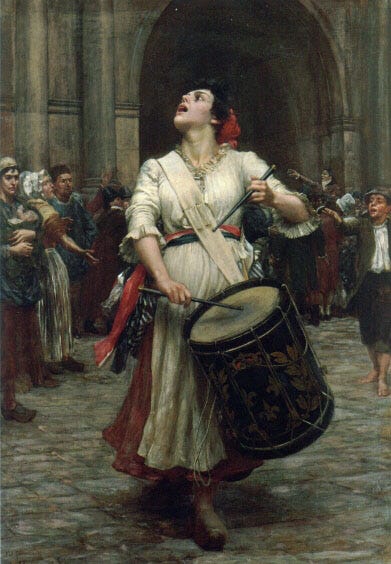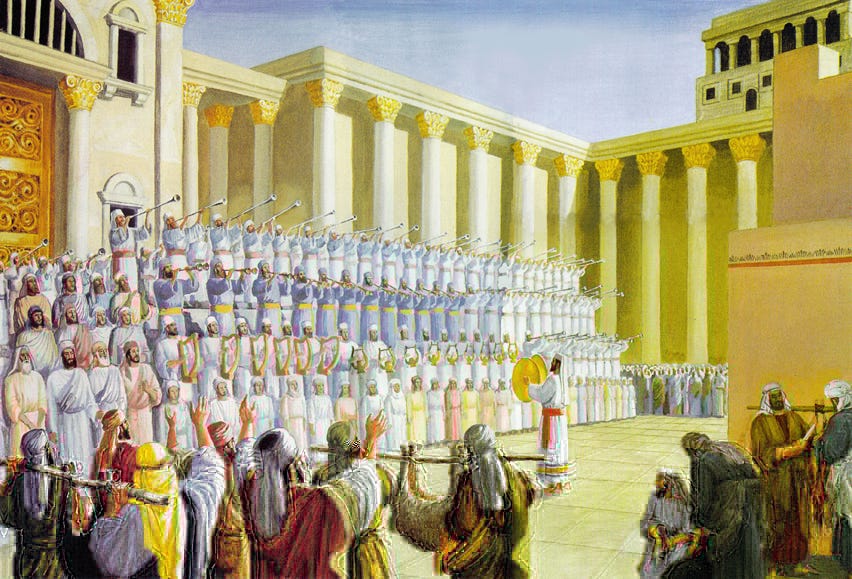Recently, a group of my colleagues performed a grand concert entitled “Glory to the Cantorate.”
I had feelings about this title—many feelings.
The first was religious opprobrium — surely glory is the Lord’s! But soon concern gave way to fascination. After all, there is something regal and almost medieval about the cantorate. As I have written previously, the cantor’s symbolic leadership and priestly vocation is analogous to aspects of the British monarchy. As lesser nobles within the Jewish religious elite, cantors once assumed synagogue posts like sacred music aristocrats, gloriously ascending to greater artistry and musical fiefdoms. This narrative is rightly subject to gross and irreligious vanities, yet it retains some of the “hero’s quest” allure of Arthurian legend, as the cantor seeks the grail of musical and religious self-actualization.
Of course, the aura of cantorial nobility was rooted in a strong sense of hierarchy. Since the Sulzerian Enlightenment, cantors have cast themselves as the protectors of the realm of Jewish worship and musical heritage. Their authority was conferred by their very office; their duchy atop the Jewish musical hierarchy firmly established above the choirmaster viscount, the chorister barons, and the congregational third estate. Thus the Golden Age of Chazzanut was filled with grand dukes of davening, troubadours of the Victrola, and other medieval personas who were clearly the face cards of the Jewish music deck (including some wild jokers).
But like all nobles, cantors were subject to periodic overthrow by the populist mob calling for musical liberty, equality, and brotherhood. This transition from the “glory days” of the cantorate is not dissimilar from the fading era of medieval chivalry — brought on, strikingly, by the re-introduction of rhythm to the service. Quoting the notable historian Johan Huizinga,
wrote: “The age of knights and chivalry indeed when drums were introduced into military campaigns. The drum instilled uniformity and solidarity into the troops, but at the expense of the individual personalities that loom so large in war narratives of an earlier day.” This similarly applies to the rise of rhythmic song in worship today, whether via the drum, the guitar, or the resonant lectern. The chivalric era of cantors, which involved deference to the individual personalities and noble gifts of prayer leaders, has been drummed out of us as tunes fall in line with new trends. Even as we attempt to rekindle unity and solidarity among Jews through music, a degree of individuality has been effaced by us all marching to the same beat.What then is the true glory of the music of hierarchy, championed as it long had been by this cantorial aristocracy? At best, it points to the notion that our individual, specialized musical gifts are of theological significance, and that we should use them in worship as an act of hiddur mitzvah -- to point the beautiful towards the good. And it shows that when we are all united, across rank and ability, we can together be “all that we can be” in both music and spirit.
To capture the true glory of the cantorate and the virtues which underly its noble potential, I had to do something.
And I did.
I wrote a poem, and set it to very old music.
I have shown this ode to cantorial glory to a few colleagues. I certainly got some looks.
But if you are the sort of person who reads this newsletter, you’ll have come to expect cantorial nerd-out moments like these from time to time. And what’s more, this poem comes in a longstanding Jewish tradition of rhymed works of cantorial ethics, going back at least three-hundred years.
I am therefore giving you all the tools at my disposal to sing this masterwork in four-part harmony from the comfort of your own home. The accompanying choral music (linked here) is Cantor Salomon Sulzer’s nineteenth-century German-language song for Confirmation ceremonies, “Ertönt, des Dankes Lieder (“Resound, O Songs of Thanks”), newly engraved by my colleague, German-Israeli conductor and arranger Ohad Stolarz. The melody line is in the soprano, and lines up with the meter of the English poem. You can hear (and sing along with) a midi recording of one full verse below.
Therefore sing with me “Glory to the Cantorate” — long may it sweetly reign.
“Glory to the Cantorate” Lyrics: Matt Austerklein Music: Salomon Sulzer (“Ertönt, des Dankes Lieder") Glory to the Cantorate, long may ye sweetly reign; thy mighty choral armies the Will of God proclaim; Within thy tent of music do all thy people rest, and shechina’s holy presence is felt in every breast. Protect the holy nusach of minhag Ashkenaz — the chanting which unites us with people and with God. Obey the Mah’ril’s teaching, and change no melody ; ki minhag shel yisrael -- hinei Torah hi! Be thou our true shaliach In prayer and in song. O be thou a ben Torah, And strive to do no wrong. Beware the yetzer hara who knows thy music well; Therefore be thou his master thru the songs of yisrael. Forget thou not chazonus thy artistry sublime; Thy improvised adornments make holiness in time. But cut not off this flower from its communal root; A nusach-rich kehillah will bear ye tuneful fruit. Forsake thou not the people who gather there with thee, Empower them to daven and sing with revery; Use nusach and niggunim and elevate their voice, For they are God’s mamlechet kohanim v’goi kado(y)sh. And if a time should come when New music should arise, Remember old King David, Whose Temple first supplied The glory of the choir and joyful song and dance— Know change is your yerusha, fear not to take a chance. Thy Glory is thy vision of Jewish melody Which magnifies our souls in radiant harmony. Thou art the tribe of Levi who serve our people long, Conductors of the symphony of Israel’s joyful song!







It's a lovely poem, however, might I suggest one alteration:
you wrote:
O be thou a ben Torah,
And strive to do know [sic] wrong.
Perhaps you might say:
Be thou ben or bat Torah
And strive to do no wrong.
Especially on this Shabbat Shirah when many of us are celebrating 50 years of women ordained in the cantorate...
Shabbat shalom.
Elaine
Thanks, Matt, that makes my day!